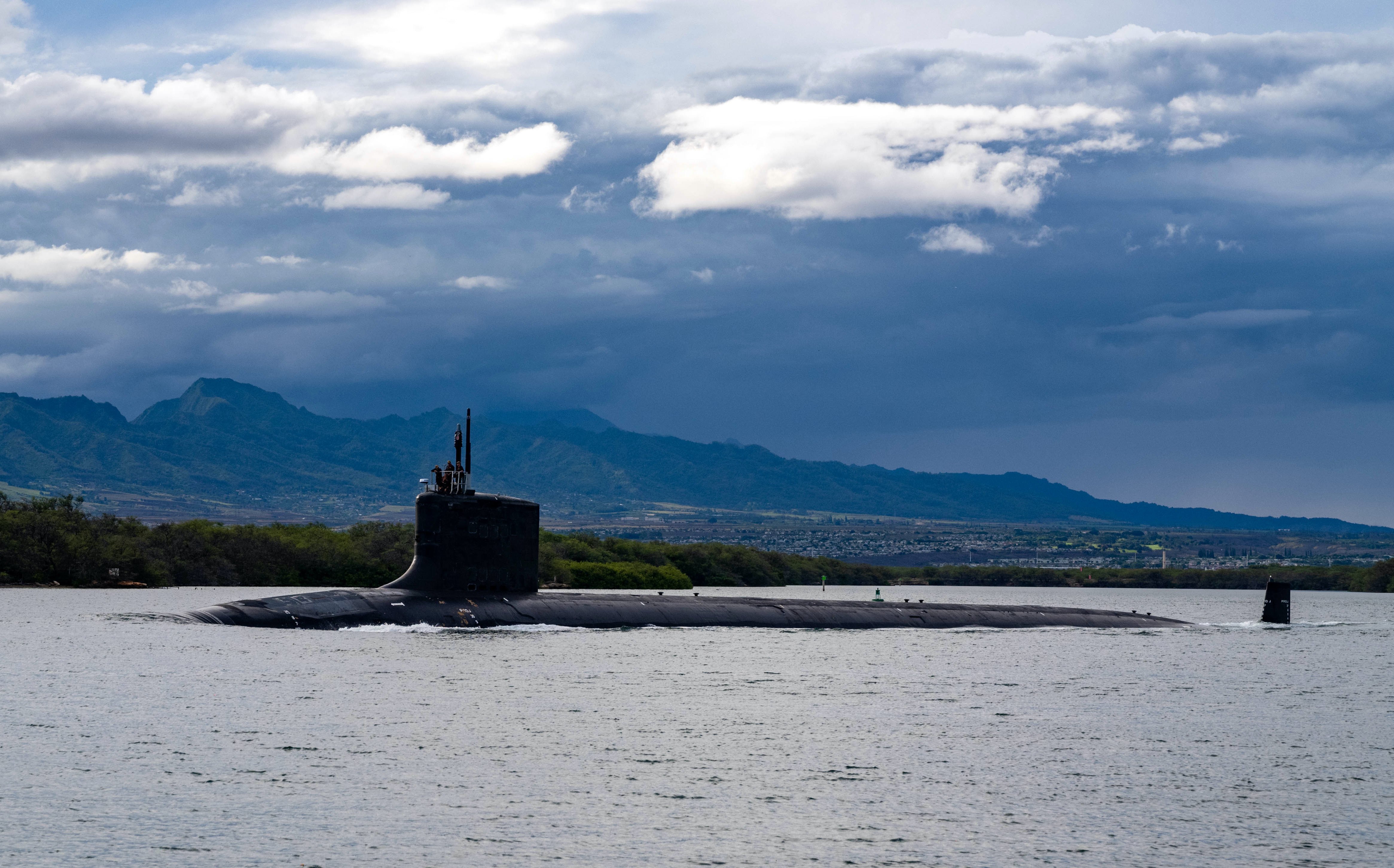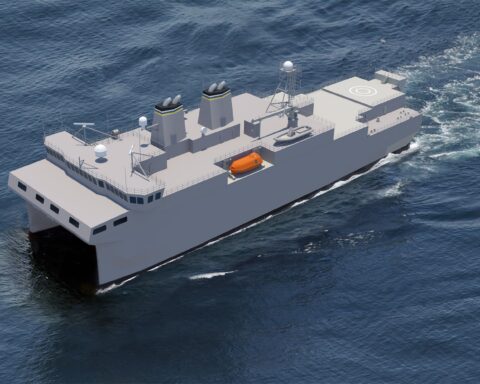This post has been updated to include the timelapse video of McCain leaving the dry dock in Yokosuka, Japan.
Guided-missile destroyer USS John S. McCain (DDG -56) has left a dry dock in Yokosuka, Japan, after nine months of repairs stemming from a 2017 collision with a merchant chemical tanker that killed ten sailors.
Following the Aug. 20 collision off the coast of Singapore, the destroyer was taken via heavy-lift ship to Yokosuka, where it entered the dry dock in February.
“Today, McCain has a fully restored hull, a new port thrust shaft, and newly constructed berthing spaces,” reads a statement from U.S. 7th Fleet.
Several divisions of Naval Sea Systems Command, representatives from General Dynamics Bath Iron Works and Sumitomo Heavy Industries worked to create an assessment of the damage and then a plan to repair the ship after the bow of Alnic MC punched through the hull of McCain.
Now pierside at the naval base in Yokosuka, where McCain is homeported as part of the Forward Deployed Naval Force Japan fleet, the ship and crew will undergo comprehensive testing and additional repairs. The work is set to be completed sometime next year, according to 7th Fleet.
“I’m proud of and thankful for every person who has worked together to move USS John S. McCain another step closer to both normalcy and sailing again with U.S. 7th Fleet,” McCain Commanding Officer Cmdr. Micah Murphy said in the 7th Fleet statement.
“There is still a lot of work to be done, but I remain impressed by the incredible teamwork, determination and flexibility shown daily by this crew as well as the [repair facility] Project Team to return a better, more lethal warship to the fleet.”
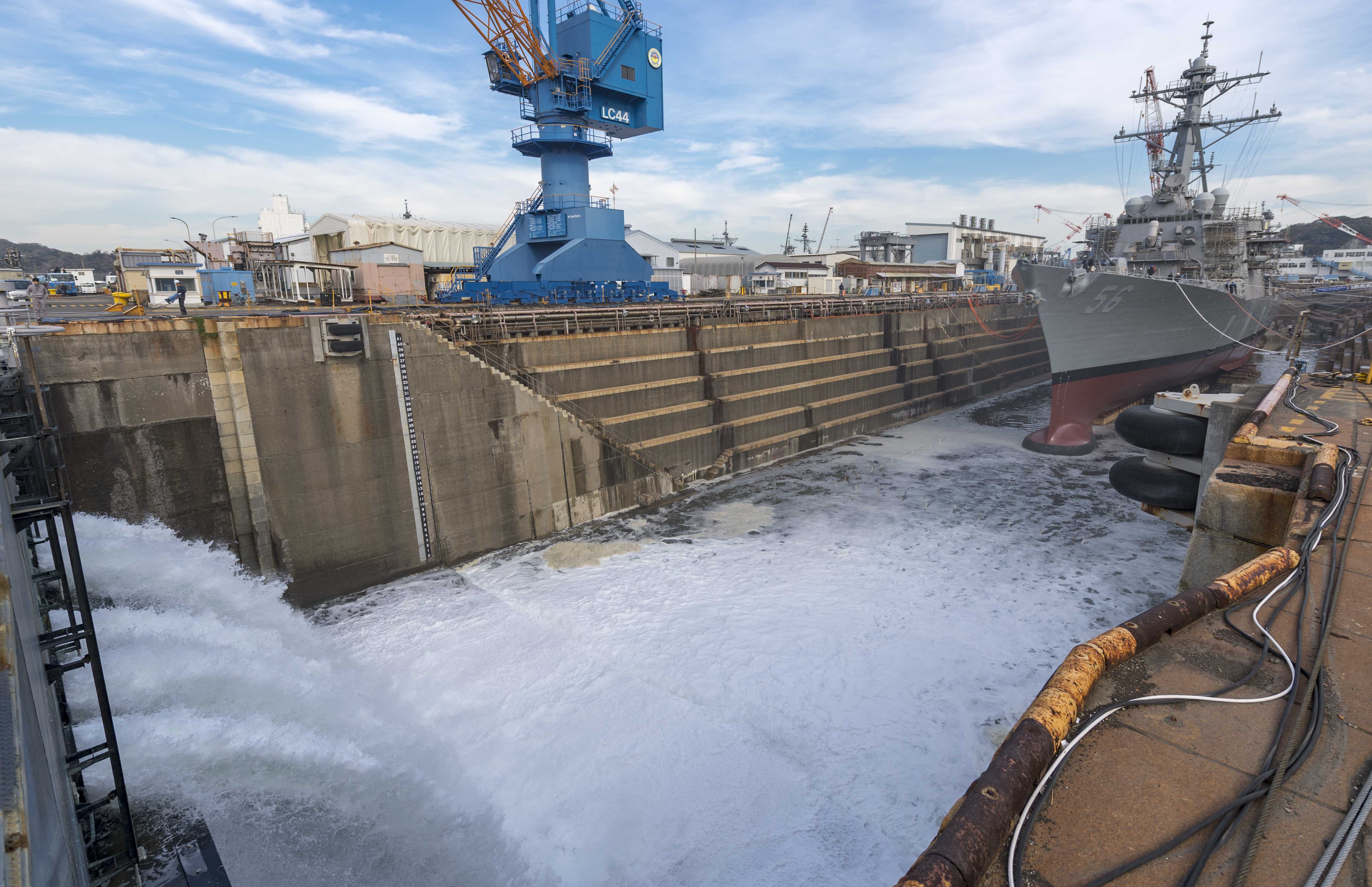
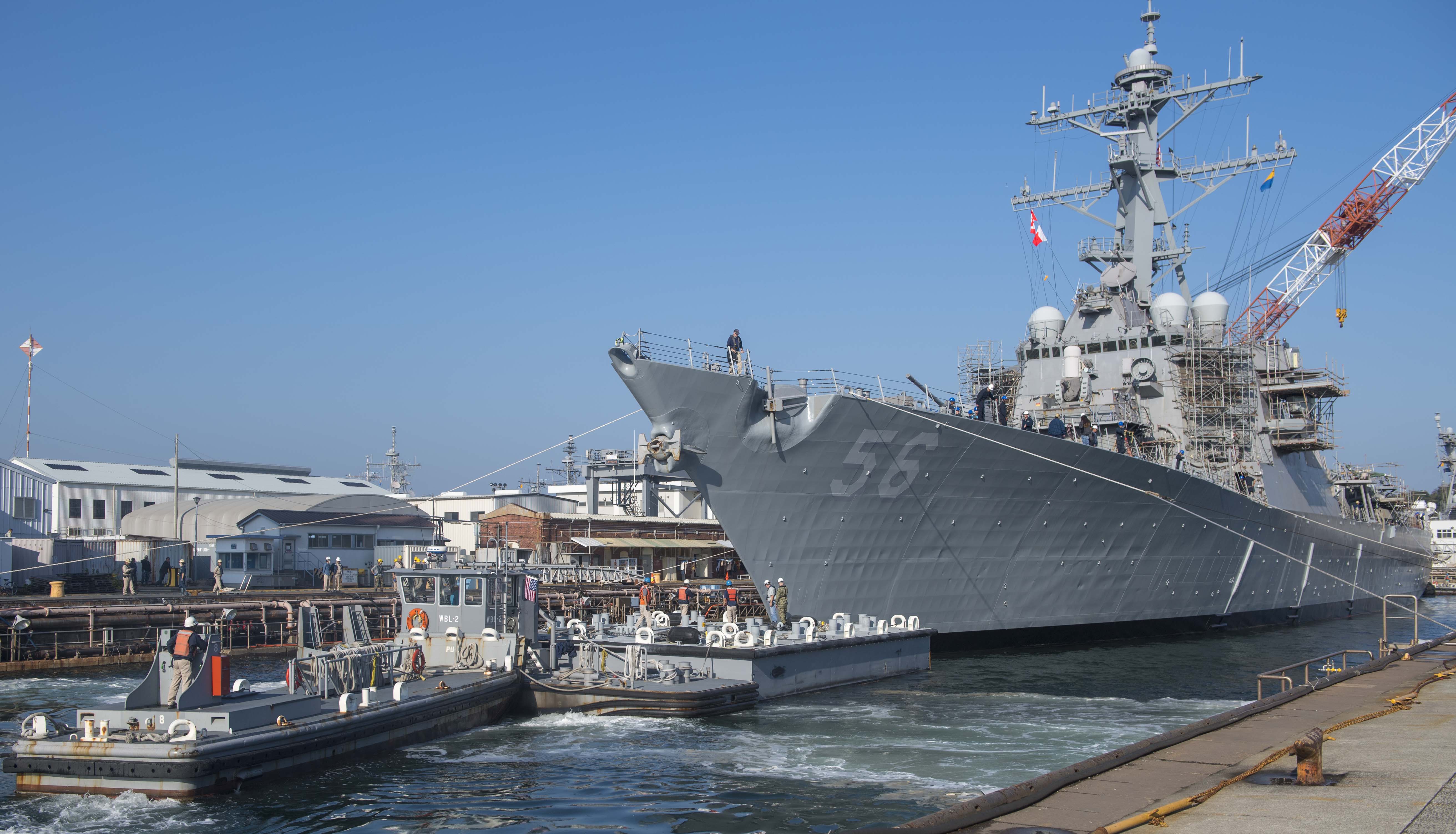
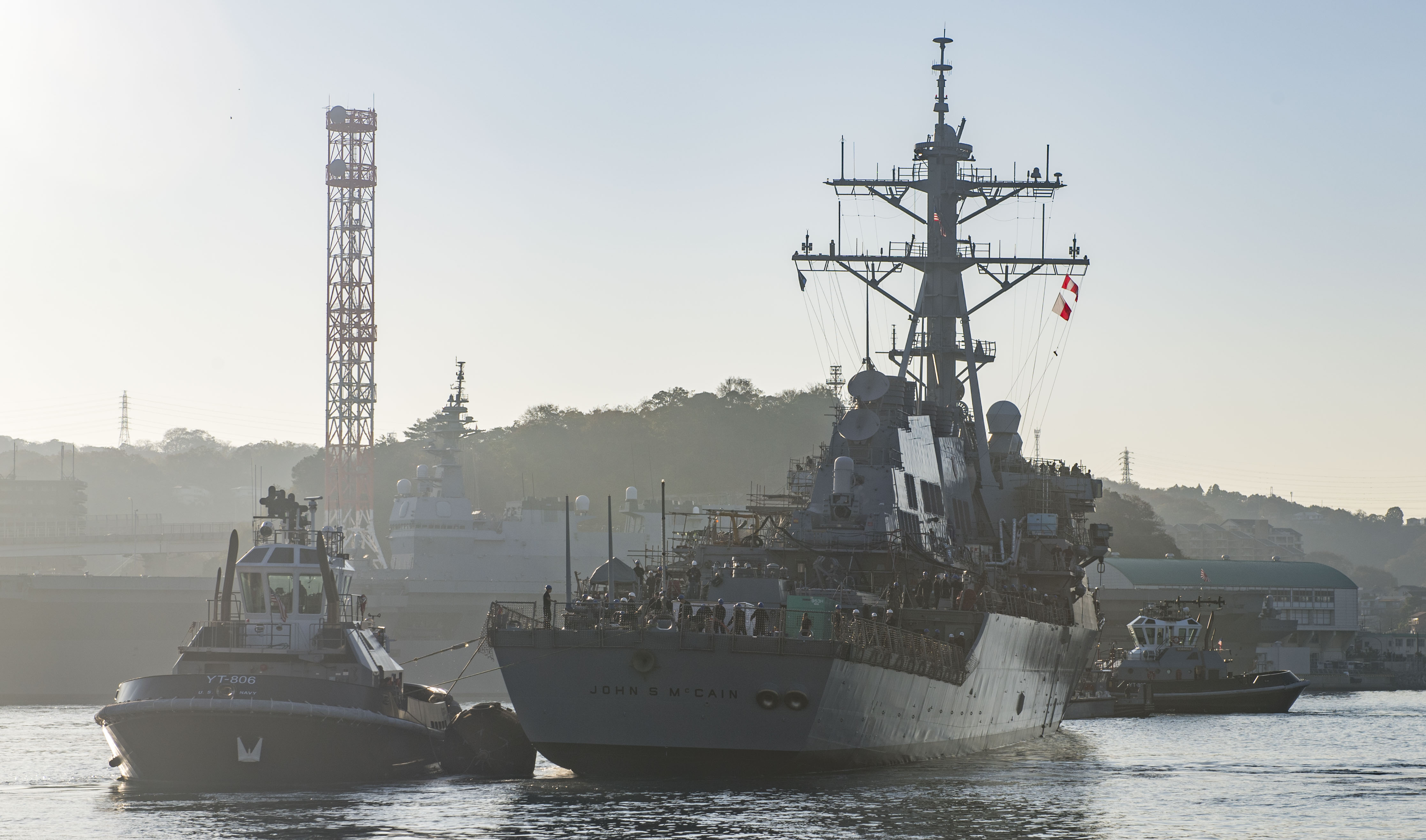
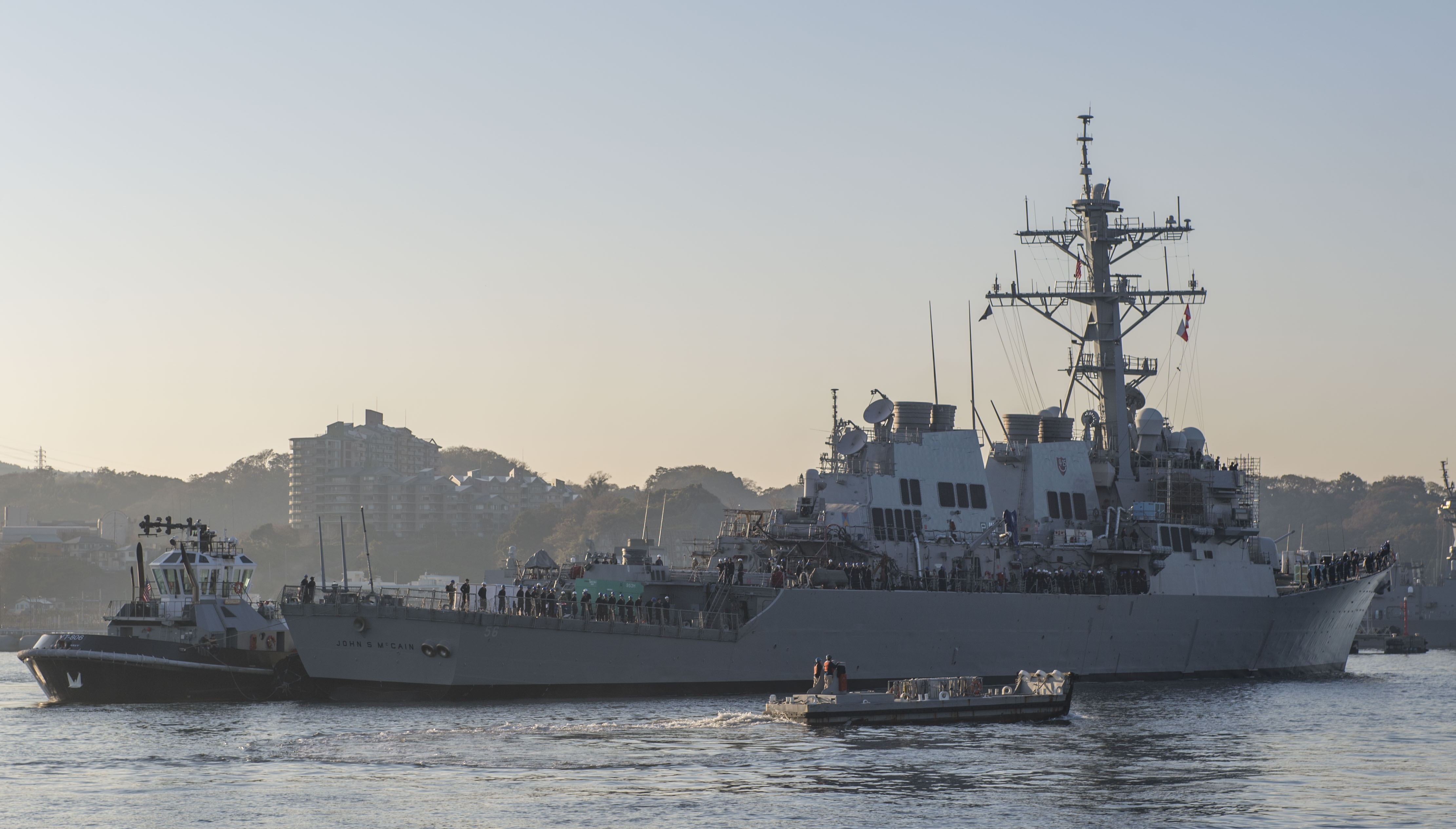
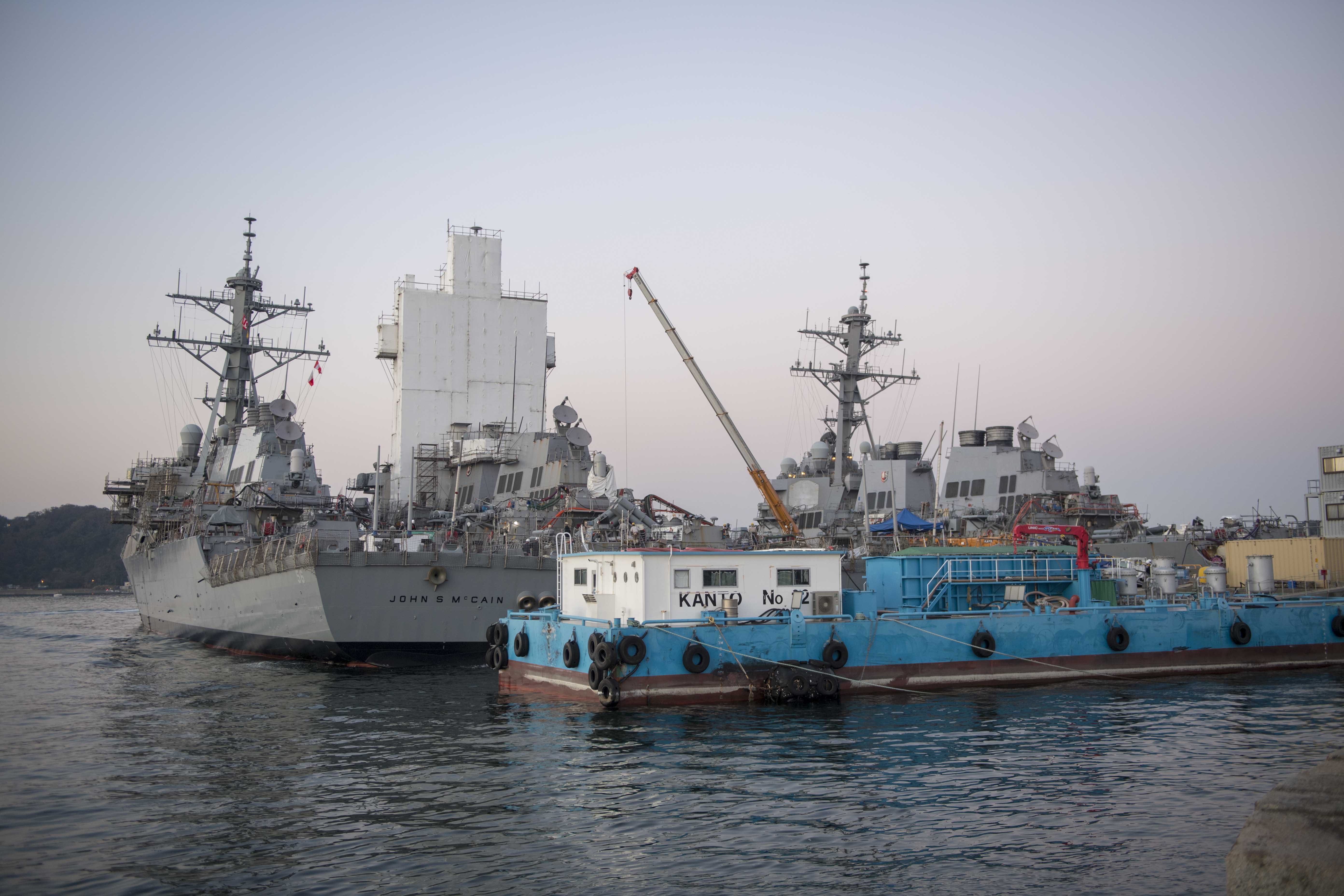
The following is the complete statement from U.S. 7th Fleet.
YOKOSUKA, Japan —USS John S. McCain (DDG 56) achieved a major milestone this week as it successfully launched from dry dock and moored pierside at Commander, Fleet Activities Yokosuka, Nov. 27.
This milestone is an important step in the ongoing effort to repair and restore one of the U.S. Navy’s most capable platforms, and reflects nearly a year’s worth of wide-reaching and successful coordination across multiple organizations. The ship entered dry dock at the Navy’s Ship Repair Facility and Japan Regional Maintenance Center (SRF-JRMC) Yokosuka in February.
“After the initial repair assessments were conducted, we had to quickly mobilize and determine the most critical steps to develop an executable repair and modernization plan,” explained Deputy Commander for Surface Warfare and Commander, Navy Regional Maintenance Center (CNRMC), Rear Adm. Jim Downey. “As we began the restoration process, we assembled cohesive teams capable of delivering both materially ready and more modernized ships to the fleet.”
To begin the repair and restoration effort, the Navy immediately reached out to personnel at Bath Iron Works (BIW) in Bath, Maine. BIW is the company that originally constructed the ship and currently serves as the planning yard for work on in-service Arleigh Burke-class destroyers. The BIW employees worked alongside representatives from Naval Sea Systems Command’s (NAVSEA) Supervisor of Shipbuilding, also in Bath, Maine, to conduct a material assessment of the ship. That information was then used by SRF-JRMC and the local Japanese repair contractor, Sumitomo Heavy Industries, to plan and swiftly execute the work ahead.
The McCain crew has been involved in every aspect of the availability.
“I’m proud of and thankful for every person who has worked together to move USS John S. McCain another step closer to both normalcy and sailing again with U.S. 7th Fleet,” said Cmdr. Micah Murphy, commanding officer, USS John S. McCain. “There is still a lot of work to be done, but I remain impressed by the incredible teamwork, determination and flexibility shown daily by this crew as well as the SRF Project Team to return a better, more lethal warship to the fleet.”
Today, McCain has a fully restored hull, a new port thrust shaft, and newly constructed berthing spaces.
The ongoing availability also includes completing maintenance work that had previously been deferred, which reflects the Navy’s commitment to ensuring that required maintenance on ships is no longer deferred. Additionally, the U.S. Pacific Fleet implemented a new force generation model to protect maintenance, training, and certification requirements prior to operational tasking for ships forward-deployed to Japan, like John S. McCain.
The ship’s crew worked alongside personnel from NAVSEA’s Naval Surface Warfare Center (NSWC) Philadelphia and Port Hueneme divisions who were challenged to develop a test plan concurrent with repair efforts.
“All key players and industry partners continue to execute the McCain effort with maximum intensity in an environment built on trust and shared goals,” said Capt. Garrett Farman, SRF-JRMC Commanding Officer. “Our mission is to keep the 7th Fleet operationally ready, and everyone on the team recognizes the immense value that this mission brings to U.S. and Japan mutual interests in keeping our waters safe.”
The complex repair and restoration required support and collaboration from all aspects of the U.S. Navy maintenance enterprise, including NSWC Philadelphia and NSWC Port Hueneme; Engineering Directorate (SEA 05); Deputy Commander for Surface Warfare (SEA 21); Commander, Navy Regional Maintenance Center (CNRMC); Southwest Regional Maintenance Center (SWRMC); Southeast Regional Maintenance Center (SERMC); Mid-Atlantic Regional Maintenance Center (MARMC); Puget Sound Naval Shipyard (PSNS); and Forward Deployed Regional Maintenance Center (FDRMC) Naples and Rota detachment.
Over the next few months, efforts will focus on testing the repaired ship’s systems in preparation for a return to operational tasking.
The Navy’s enterprise leadership continues to make improvements with routine, close oversight provided by the Fleet Commanders and the Navy staff to generate ready ships and aircraft on-time and on-plan. Improved ship-class maintenance plans are capturing a more robust understanding of fleet maintenance requirements, and the elimination of work deferrals are improving the material condition of the fleet.
This summer, Secretary of the Navy Richard V. Spencer inducted U.S. Sen. John S. McCain III into the ship’s official namesake alongside his father and grandfather in a ceremony on board, July 12. The crew’s messdecks, known as the Maverick Café, re-opened for business on Nov. 19, the late Senator’s birthday.
John S. McCain is forward-deployed to Yokosuka, Japan as part of the U.S. Seventh Fleet. The ship is expected to complete repairs in late 2019.



